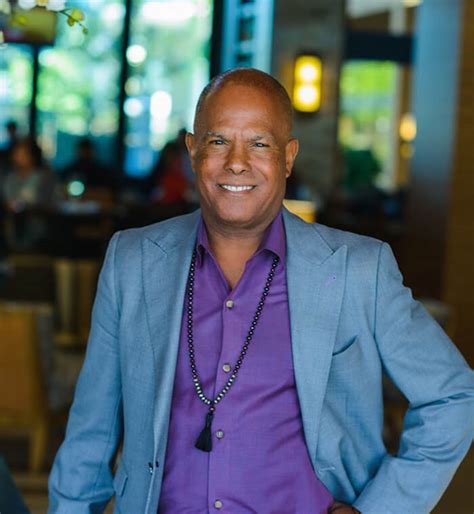A Quote by Lewis B. Smedes
Forgiving is an affair strictly between a victim and a victimizer. Everyone else should step aside...The worst wounds I ever felt were the ones people gave to my children. Wrong my kids, you wrong me. And my hurt qualifies me to forgive you. But only for the pain you caused me when you wounded them. My children alone are qualified to forgive you for what you did to them.
Related Quotes
I worry about fast forgivers. They tend to forgive quickly in order to avoid their pain. Or they forgive fast in order to get an advantage over the people they forgive. And their instant forgiving only makes things worse... People who have been wronged badly and wounded deeply should give themselves time and space before they forgive... There is a right moment to forgive. We cannot predict it in advance; we can only get ourselves ready for it when it arrives... Don't do it quickly, but don't wait too long.
Forgive yourself for believing things about yourself that are not true. Forgive yourself for believing that you were anything other than a child of God. Then, after forgiving yourself for believing the things you were told, forgive the people who told you. Forgive them not for what they said or did. Forgive them because they did not know any better.
I don't struggle to forgive people. I find it quite easy to forgive people for the harms that they have inflicted on me. What I do find challenging is to forgive people for the harms they inflict on my daughters and family. So, I find it challenging when I see somebody else experience hurt. I also look at my children and family and then I realize, I don't stand inside their skin and that is for me a forgiveness practice I still need to engage in.
You know, Sage, Jesus didn't tell us to forgive everyone. He said turn the other cheek, but only if you the one who was hit. Even the Lord's Prayer says it loud and clear: Forgive us our trespasses, as we forgive those who trespass against us. Not others. What Jesus challenges us to do is to let go of the wrong done to you personally, not the wrong done to someone else. But most Christians incorrectly assume that this means that being a good christian means forgiving all sins, and the sinners.
They say that when god was in Jerusalem he forgave his murderers, but now he will not forgive an honest man for differing with him on the subject of the Trinity. They say that God says to me, "Forgive your enemies." I say, "I do;" but he says, "I will damn mine." God should be consistent. If he wants me to forgive my enemies he should forgive his. I am asked to forgive enemies who can hurt me. God is only asked to forgive enemies who cannot hurt him. He certainly ought to be as generous as he asks us to be.
Forgive a wife-slammer if you can. But you don't have to live with him. Forgive a husband who is abusing your children if you can. But only after you kick him out of the house. And if you can't get him out, get help. It's available. In the meantime, don't let him near the kids, and don't let anyone tell you that if you forgive him it means you have to stay with him. [There's an important difference between forgiving a person and tolerating their bad behavior.]
We forgive, if we are wise, not for the other person, but for ourselves. We forgive, not to erase a wrong, but to relieve the residue of the wrong that is alive within us. We forgive because it is less painful than holding on to resentment. We forgive because without it we condemn ourselves to repeating endlessly the very trauma or situation that hurt us so. We forgive because ultimately it is the smartest action to take on our own behalf. We forgive because it restores to us a sense of inner balance.
To forgive another from the heart is an act of liberation. We set that person free from the negative bonds that exist between us. As long as we do not forgive we pull them with us, or worse, as a heavy load. The great temptation is to cling in anger to our enemies & then define ourselves as being offended & wounded by them. Forgiveness, therefore, liberates not only the other but also ourselves. It is the way to the freedom of the children of God.
You must forgive everyone. Now many would say that "We cannot forgive, it's very difficult." But it's a myth whether you forgive or don't forgive. What do you do? You don't do anything. But when you don't forgive, then you are playing into wrong hands. That means you are torturing yourself, while those who have troubled you are quite happy.
When an injustice happens, we want to be vindicated. People feel that if they forgive the person who hurt them, then they will continue to take advantage of them or not take responsibility for what they did wrong. If we're honest, we'll admit that we usually want the person who hurt us to pay for what they did. We can't get past this until we get the revelation that only God can pay us back. He is our Vindicator - He will heal and restore us if we will trust Him and forgive our enemies as He has told us to do.
What is forgiving? Forgiving is giving up all claim on one who had hurt you and letting go of the emotional consequences of the hurt. How can we do that? It's done at the price of beating back our pride. By nature we are selfish. Forgiving, by definition, is unselfish. Being hurt by another person wounds our pride. Pride stands in the way of forgiving. We cannot forgive without God's help. It might be possible for us to forgive something inconsequential without God's help; but in significant matters, we are unlikely to accomplish anything without God's involvement in the process.
If we have goals and dreams and we want to do our best, and if we love people and we don’t want to hurt them or lose them, we should feel pain when things go wrong. The point isn’t to live without any regrets, the point is to not hate ourselves for having them… We need to learn to love the flawed, imperfect things that we create, and to forgive ourselves for creating them. Regret doesn’t remind us that we did badly — it reminds us that we know we can do better.































